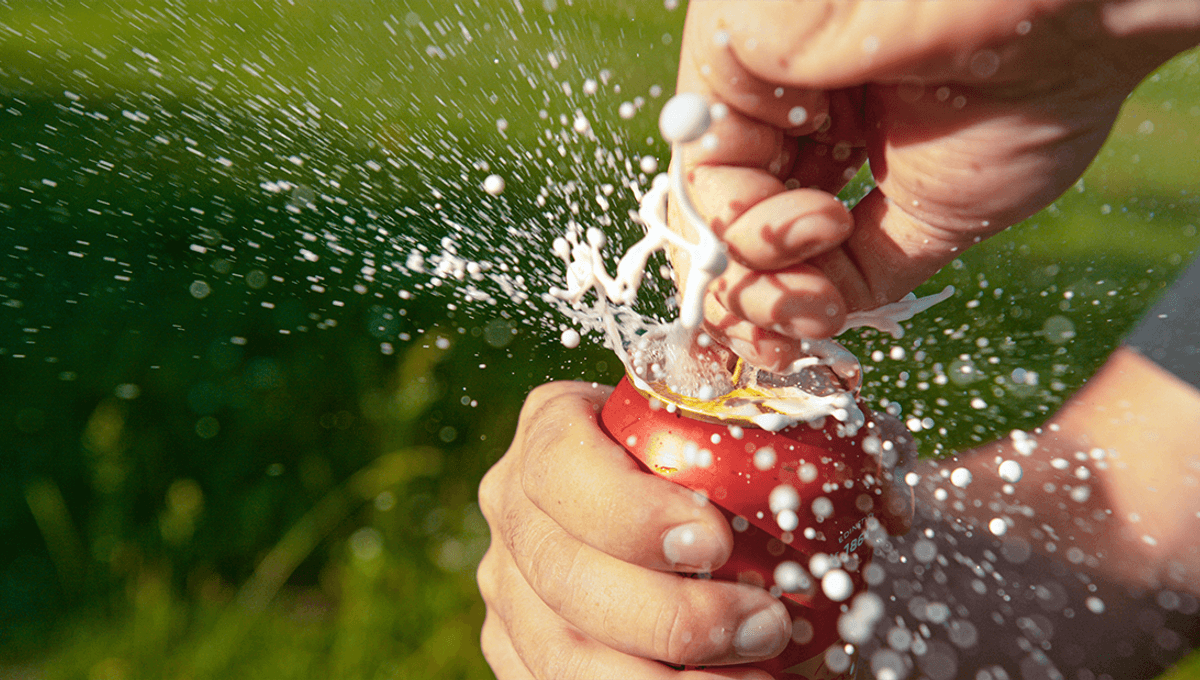
Everyone is familiar with what happens when you shake up a bottle of soda and then open it up, or else hand it to an unsuspecting friend and let them open it up.
If you don’t, well it will explode everywhere. But the reason that happens may not be what you have been told.
The oft-repeated reason for why this happens is that shaking the bottle causes an increase in pressure, but this explanation doesn’t really make any sense. The bottle is a closed system, and the only way to increase its pressure is to squeeze it into a smaller shape, or else add more pressure by opening the bottle and forcing more fluid or air inside.
Don’t believe us? Try squeezing a bottle of cola, shaking it, and then squeezing it again. It should be just as squeezable as it was before, rather than suddenly pressurized and harder to press. Measuring the pressure would also do the trick.
So what’s really going on?
Bottles of soda are pressurized above atmospheric pressure, and the “fizz” comes from carbon dioxide dissolved into the liquid.
“Carbonation involves dissolving the colorless and odorless carbon dioxide – CO₂ – gas into a liquid. When carbon dioxide is added to a sealed bottle or can containing water, the pressure in the bottle or can increases, and the carbon dioxide dissolves into the liquid,” Michael W. Crowder, Professor of Chemistry and Biochemistry at Miami University, explains in a piece for The Conversation.
“The CO₂ above the liquid and the CO₂ dissolved in the liquid reach chemical equilibrium. Chemical equilibrium essentially means the rate that CO₂ dissolves into the liquid is equal to the rate that CO₂ is released from the liquid. It’s based on the amounts of CO₂ both in the air and in the liquid.”
Opening up the bottle causes the pressure in the air above the liquid to drop to match the surrounding environment. At this point, carbonic acid (H₂CO₃) converts back to CO₂, and the gas bubbles at the surface.
How quickly the CO₂ escapes depends upon the surface area of the liquid. E.g. if you pour it directly into the bottom of a glass, that increases the surface area dramatically compared to pouring it slowly down the sides, and the result is that the carefully poured glass will retain fizz for longer.
When you shake a bottle of soda, what you are really doing is making the gas within the bottle above the soda mix into the liquid. Since the liquid is already at maximum saturation, CO₂ can no longer dissolve into it, and instead it forms bubbles throughout the bottle. These bubbles introduce more surface area.
“Without shaking, the only exposed surface is at the neck of the bottle. But if you shake, bubbles become dispersed through the liquid and the surface area becomes very large, as each bubble now represents a liquid-gas interface,” Joe Schwarcz of the McGill Office for Science and Society explains in a blog post. “The dissolved carbon dioxide quickly evaporates into each bubble, causing the bubbles to expand, thereby propelling the liquid out of the bottle as a foam.”
All “explainer” articles are confirmed by fact checkers to be correct at time of publishing. Text, images, and links may be edited, removed, or added to at a later date to keep information current.
Source Link: Shaking A Bottle Of Cola Doesn't Increase Its Pressure. So Why Does It Explode?